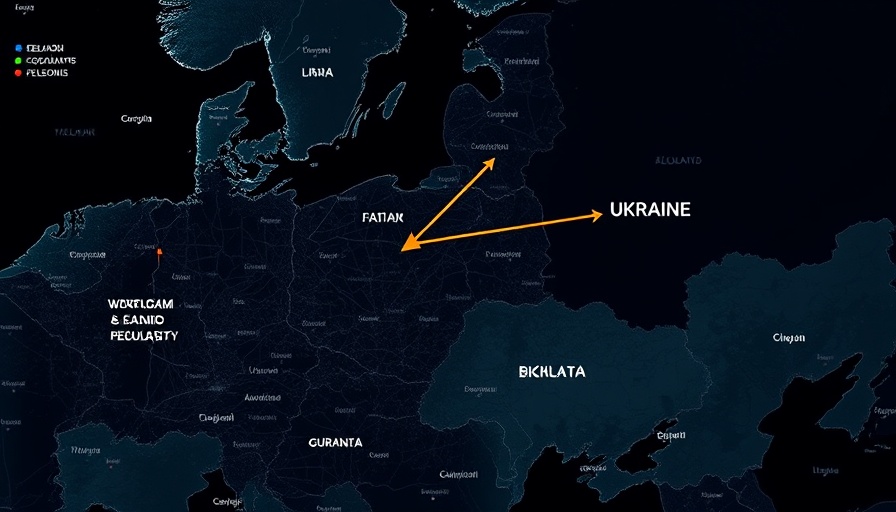
Why Are Military Aircraft Taking to the Skies Over Major US Cities?
In recent weeks, a surge in military aircraft flying over major US cities has sparked intrigue and concern among the public. This phenomenon raises questions about its implications, particularly in the changing landscape of global security and how it connects to the audience's interest in the history of wars both in Africa and around the globe.
In 'Why are military aircraft suddenly flying over major US cities?', the discussion dives into the intersection of security and civilian life, exploring key insights that sparked deeper analysis on our end.
The Historical Context of Military Aircraft in Urban Areas
To fully understand why military aircraft are increasingly visible in urban skies, we must delve into their historical role during crises. Traditionally, military flights over cities have been symbolic, signaling readiness in times of war or national alert. For instance, during the Gulf War, we witnessed a heightened military presence as a show of strength. As countries grapple with modern conflicts, the line between military might and civilian life becomes blurred, causing citizens to question their safety and government transparency.
The Urgency of Military Presence
This spike in military flights can be attributed to heightened concerns over national security. With ongoing geopolitical tensions, including threats from various global hotspots, military operations often extend to urban surveillance. This trend mirrors instances in Africa, where military interventions have historically been justified under the guise of national security amidst civil unrest. This connection not only resonates with African audiences familiar with the role of military forces in local conflicts but also emphasizes the universal importance of safety and security.
Public Response and Reactions
Public response to this uptick is often filled with questions: Are these aircraft monitoring civil unrest? Are our cities safe? In the past, increased military presence has led to both fear and a sense of security, showcasing the dual narrative that military interventions can produce. Just as communities in Africa may feel the impact of foreign military involvement, US citizens today are grappling with the implications of military flights above their heads.
The Broader Implications for Global Affairs
What does this increased visibility of military aircraft suggest about the future of international relations? It indicates a shift toward military readiness and political maneuvering that could have lasting effects beyond American borders. As nations are globally interconnected, the presence of military aircraft in one region can influence sentiments worldwide, uplifting or reinforcing tensions. This occurrence serves as a reminder of the fragile balance in international diplomacy, drawing parallels to similar situations in Africa where military presence often signifies political message delivery or conflict resolution strategies.
What Does This Mean for You?
Understanding the reasons behind military flights over urban areas is crucial for all of us. It encourages a reflective dialogue on national sentiments and the role of military force in governance. Whether in the US or within African boundaries, the implications of military actions resonate deeply, shedding light on a shared human experience rooted in the quest for security and peace.
If you’re a global citizen interested in staying informed about military actions and their broader implications on peace and security, now is the time to engage in discussions that lead to awareness and proactive actions.
 Add Row
Add Row  Add
Add 


 Add Row
Add Row  Add
Add 

Write A Comment